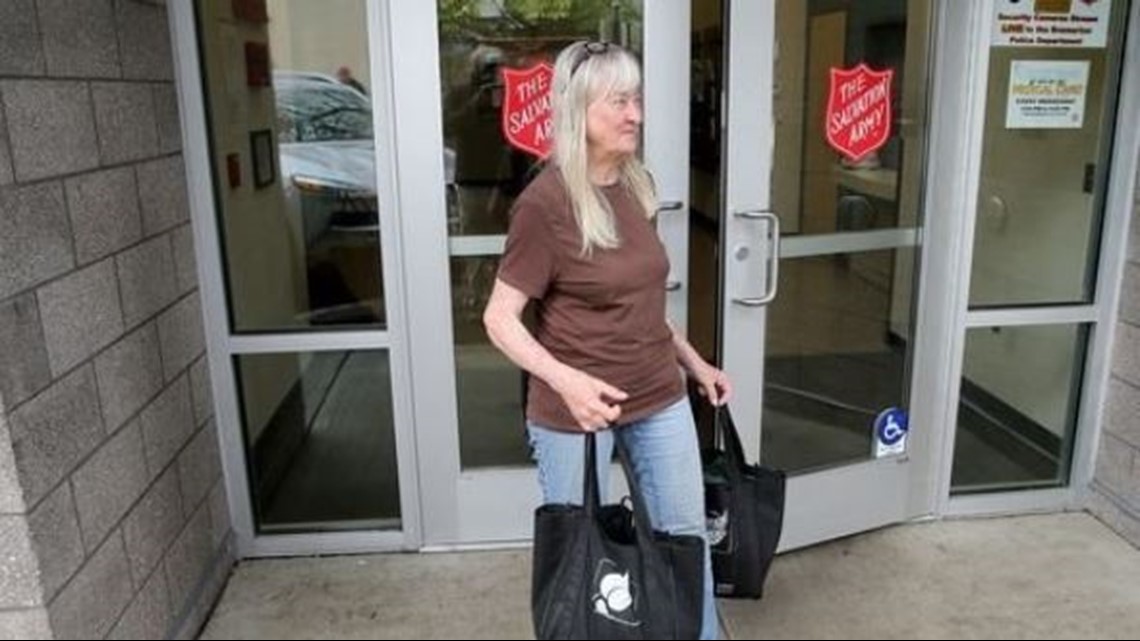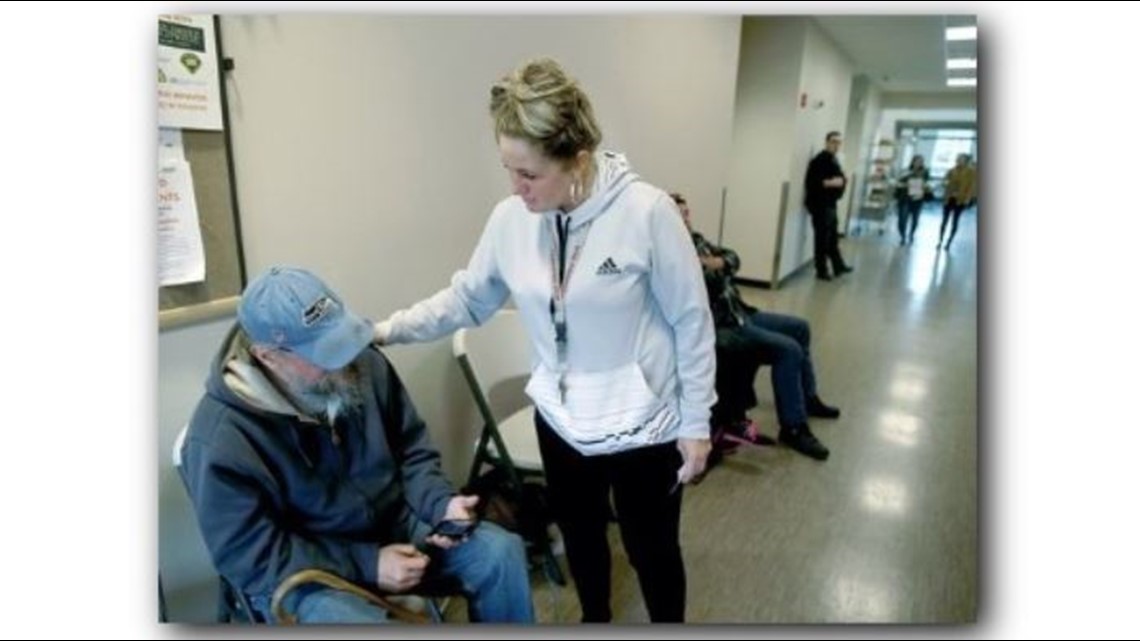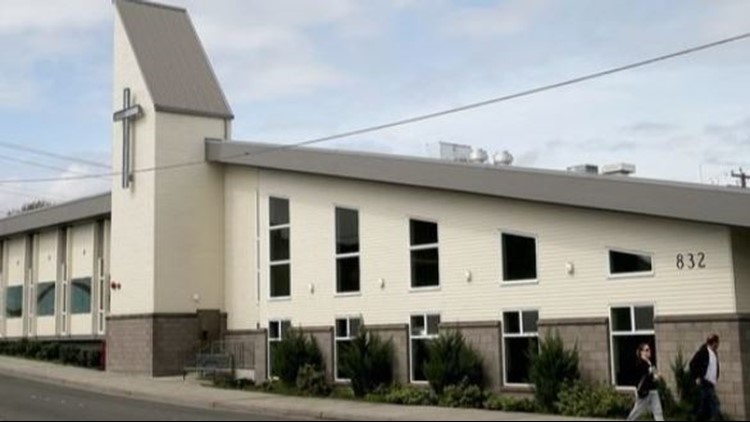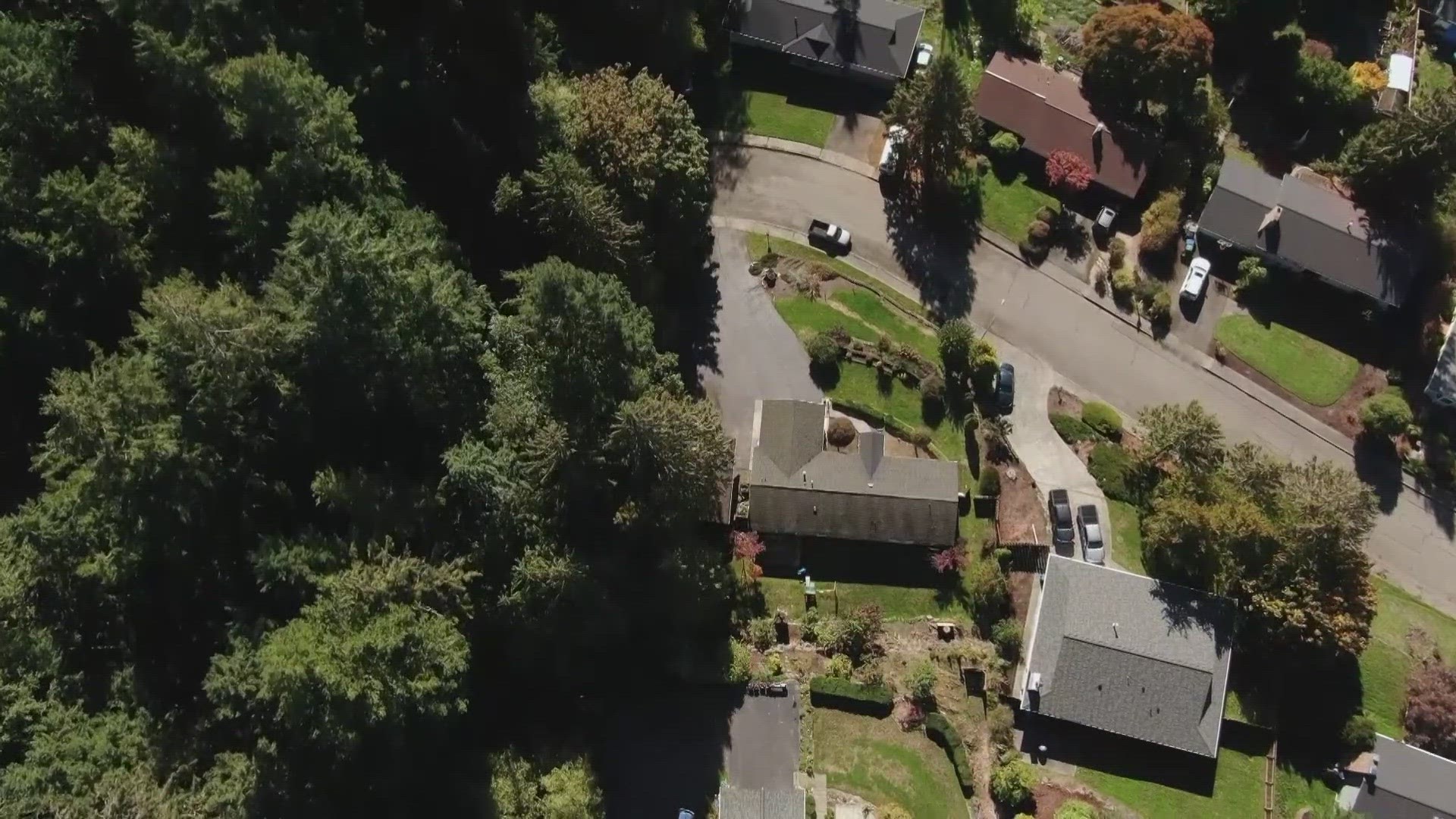BREMERTON — Les Rhoads will have to wait two weeks for the appointment that will determine whether or not he can be placed in an apartment.
But when you're out on the street, "two weeks is a really long time," Rhoads said.
For the last four months, Rhoads, 57, has stayed most nights at Salvation Army's overnight winter shelter on Sixth Street. The shelter closed last week, leaving upwards of 60 people a night without a place to sleep.
Salvation Army staff and volunteers have scrambled to assist a record number of people, many of whom had nowhere else to stay during the winter months.
"In the last week of the shelter, (Salvation Army staff) were running around, pulling their hair out, trying to figure things out to help as many people as they could," Rhoads said. "I saw dismay on their faces for the first time."
For the last three years, the nonprofit’s shelter has been Kitsap's only nightly, low-barrier, pet-friendly shelter to operate during the winter months. The county has several emergency shelters that open during extreme weather.


That could change next year. Sheryl Piercy, the Salvation Army's social services director, said the Salvation Army doesn’t plan to apply for another county grant to open the shelter in 2019.
Burdened by an increasing homeless population that outstrips the building's capacity, the Salvation Army is looking to the rest of Kitsap's social safety net to step in and help.
Between December and March, the shelter hosted 474 people ranging in age from 2 months to 88 years, according to Piercy. On an average night, the shelter hosted upwards of 60 people.
On its busiest night, 91 people crammed themselves into the building, filling up every available inch of floor space.
"The contract was 40 people, but we had a really hard time doing that because, how do you turn people away?” Piercy said.
Not enough help to go around
The Salvation Army was able to get 11 people into alcohol or drug abuse treatment programs, and an additional 27 found some sort of permanent housing. Some of them might have taken advantage of other shelters, like the Kitsap Rescue Mission up the street.
On its last day, the Salvation Army passed out regional bus passes and packets with info about other shelters. Calls were made to shelters in other counties to let them know Kitsap didn't have enough services for its population.
Tents and camping gear were given to people who would use them appropriately. Some of the most vulnerable — people with medical issues or the elderly — were put into hotels. Others tried to contact family members in the area.
“I would say a lot of them are hopeless and miserable on the street because there's nothing for them,” Piercy said.


Rhoads has a vehicle and a small monthly income to keep it running. He said he plans to keep moving around until his appointment with the Housing and Essential Needs program, which could pay for an apartment.
Even with a place to stay, Rhoads isn't sure he can find a job.
"I'm 57 years old, and people aren't hiring 57-year-olds," he said.
James Meek, 47, only spent a few weeks at the Salvation Army, but was able to get into an inpatient treatment center in Chehalis. After 28 days in that program, he also hopes to get housing in Kitsap.
Originally from Oklahoma, Meek said his downhill slide started after he got a DUI and missed work. His employer fired him the next day.
"Just to get my mind straight, back in business, I gotta go take care of myself right now," Meek said.
Kitsap Rescue Mission is a short-term option for some. But KRM only has 25 beds, and you have to call every morning to reserve your spot for that night.
"Most of the percentage of our people don't have telephones, and they don't have the ability to even navigate through some of that," Fleetwood said. "So the process is difficult."
A different solution
Operating the shelter has been an increasing struggle for the Salvation Army, which stepped in and offered its newly renovated facility for the job in 2016. Since then, the total number of people the shelter houses has doubled.
The nonprofit also dealt with an infestation of bed bugs for the first time this year. The problem got so bad, the shelter was forced to close for a 24-hour period in January to fumigate. Community members brought supplies and food to support an impromptu tent city that popped up around the building.
In all, Piercy estimated the nonprofit spent almost $14,000 dealing with the bed bug problem. Combined with the additional staff the nonprofit hired to work with the volume of people it was serving and damage done to the building, the shelter felt pushed to its limits.
"It costs a lot, especially when you double the caseload," Piercy said.
So Piercy went to the Kitsap Housing and Homeless Coalition to ask for help. A group of social service agencies agreed, and have begun talking about establishing a year-round, low-barrier shelter.
"The Salvation Army has done a herculean job managing folks. They practically doubled their capacity over the years," said Joe Roszak, CEO of Kitsap Mental Health Services. "We're having conversations because this is a specific and very important need in our community."
Several agencies including Kitsap Mental Health Services, Peninsula Community Health Services, Kitsap Rescue Mission and Kitsap Community Resources are involved in the talks, which are still in the feasibility stage.
One solution might be a year-round shelter that could house people all day while offering medical assistance and case management. The Salvation Army could provide meals, showers and laundry.
"This is something that's going to be addressed through a collaboration of partners across the community," Roszak said.
The first and biggest roadblock to any potential shelter is property, said Monica Bernhard of Kitsap Mental Health Services. Funding might be available through grant programs, but it's not likely something could be built before the end of the year.
The group is in the process of looking at potential sites.
"In order to do anything before next winter, there has to be an available site that can be developed for this," Bernhard said.
Bernhard added that a shelter isn't a long-term solution, and more affordable housing is needing to solve the homelessness problem.
There's a strong sense of urgency to find a solution, Bernhard said. The Salvation Army is committed to opening the shelter in December 2018, but isn't applying for a grant to run in 2019, according to Piercy.
If nothing materializes, the Salvation Army might be forced to fill the role of shelter once again.
"If it doesn't happen, we'll probably step up and do it again," Piercy said.



